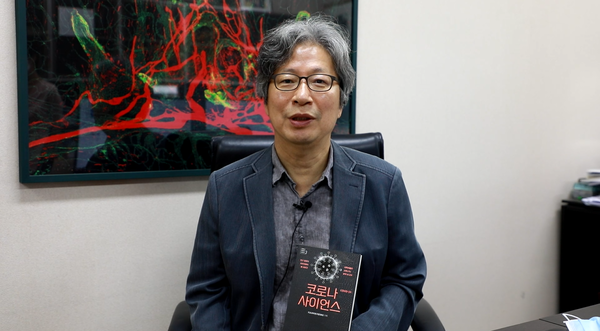The Covid-19 mainly targets nasal epithelial cells for proliferation in the early stage of infection, a joint research team said Friday.
The interim conclusion came when the exact mechanism of infection has not been revealed even after the pandemic lasted for more than 18 months since the outbreak.

Researchers have had limited knowledge of how the Covid-19 virus infects people. Studies only revealed that it infects the upper respiratory tract, including nasal, pharyngeal, laryngeal, and bronchial tissues, causing difficulties preparing effective control measures.
The Covid-19 virus binds to the ACE2, TMPRSS2, and furin receptors and penetrates the cell. Thus, the three proteins act as pathways for viruses to infiltrate the human body and cause infection. Besides, researchers had a hard time identifying how the virus infects people as it already began proliferation by the time patients were diagnosed with an infection.
However, the research team participating in a study under the auspices of the Institute for Basic Science (IBS overcame the existing limitations by applying various techniques to analyze samples obtained from early-stage Covid-19 patients.
The joint research team -- led by the Professor Koh Gou-young of the Korea Advanced Institute of Science and Technology (KAIST) Graduate School of Medical Science and Engineering and Professor Lee Chang-seop of Jeonbuk National University Internal Medicine Department -- captured an image of the moment Covid-19 virus replication.
Researchers found that the ACE2, TMPRSS2, and furin receptors were concentrated at the surface of epithelial cells in the nose, implying that the infection begins from the inner nose.
The research team also confirmed that the virus only proliferated in nasal epithelial cells by analyzing the nasal and oral cells of the early-stage Covid-19 patients.
The viral proliferation stopped within eight days in mild Covid-19 patients. However, they recovered with rapid regeneration of ciliated epithelial cells, suggesting that nasal mucosal immunity could play a key role in treating Covid-19.
“The virus could spread to other organs, including the lung, more quickly if patients’ nasal epithelial cells are damaged, and they called for the need of follow-up studies and development of vaccines and therapies,” said senior researchers Ahn Ji-hoon and Kim Jung-mo, of the IBS Center for Vascular Research.
Professor Lee also said, “People should be wearing a mask to completely cover their nose and mouth until the nation forms herd immunity.”
Professor Koh Gyu-young added, saying, “The formation of mucosal immunity through intranasal vaccine administration will be one of the main strategies for preventing Covid-19 infection.”
The study results were published in the Journal of Clinical Investigation on July 2.

